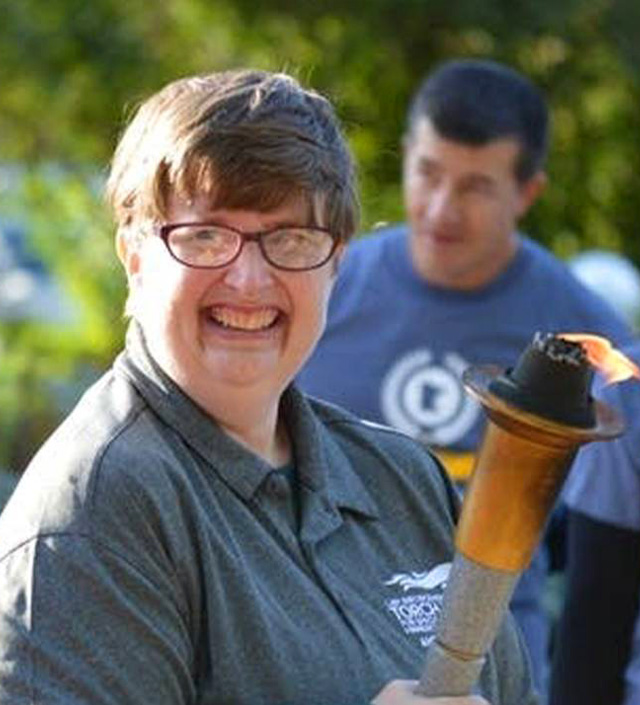
Like most moms, I think a lot about what will happen to my kids as they become adults, develop hopes and dreams, and interact with the world. As a mom of two kids with disabilities, my thoughts are often tinged with anxiety. I counteract that anxiety by focusing on helping them build executive functioning skills and engage in daily-living activities. My hope is they’ll use these experiences to establish life-long routines for themselves. But there are bound to be gaps in what I can teach that will stick with them.
Those gaps cause more anxiety because of the potential risks they bring to my kids. There are the obvious health risks, such as if they cannot or will not brush their teeth daily. Going to the dentist is another huge obstacle for them – the discomfort of a new place, of unwanted touches, of heightened sensory sensitivity in a place flooded with fluorescent light. It’s unlike home, where I can control the environment.
There are also potential mental health risks as my children become increasingly aware of how they are different and that they’re expected to fit into a world that wasn’t built for them. I’m confident that expectation is changing, as neurodiversity becomes more understood and accepted, but it’s not happening fast enough for my taste. Then there’s the overarching risk that their differences can cause them to be vulnerable, more open to being taken advantage of.
Of course, they are young, and my hope is that my worries are for naught. In the meantime, I prepare. And the best legal tool I’ve found to assist with this preparation is a microboard.
The legal entity few have heard of
From a functional standpoint, think of a microboard as a lifelong, formalized circle of support that focuses on a single person, or a board of directors whose sole purpose is to support one person.
A microboard is a legal entity that’s organized slightly differently in each state. In my home state of Virginia, a microboard is a non-stock corporation that is organized to benefit one person. The board is required to meet at least annually, files minutes, and adhere to guidelines set by the person who established the board (usually the parents, but not always). Board members agree to serve a set term.
The legal structure gives microboards the credibility, seriousness and permanence I was seeking for my own family as well as for my clients. Most families have the ability to convene a group of people (such as relatives and/or friends) on an annual basis. Microboards’ bylaws, meeting minutes and board positions establish a framework and expectations for volunteer board members.
Microboards also offer other benefits. For example, they support not only people with disabilities, but also their guardians and trustee. When parents age or die, a microboard can help ensure that the child, continues to receive all of the unpaid supports the parent had provided.
Board members can also check on the disabled person ‘s mental health and make sure they are receiving community interaction and involvement, have transportation to necessary appointments, and understand who and what is important in their lives (friends, therapists, fun activities).
A microboard can also serve as a sounding board for large decisions. This can be especially helpful if a new trustee takes over the role of financial decision-making. Board members can suggest where the disabled individual should live and can talk through large financial requests before making money-related decisions.
Two success stories
I have seen microboards in action and two particular instances give me incredible peace of mind.
Easing a housing transition
In the first situation, mom and dad passed away and their adult son, who had lived with them, was now on his own. I’ll call him JJ to protect his privacy). Complying with documents put in place, the microboard, the trustee and J.J.’s guardian met with JJ to determine where he should live. They looked at whether he was capable of continuing to live in the family home or if he needed alternate housing where he’d find more supports.
As it turned out, JJ had two friends who were living together in a supported-living environment and a bedroom in that house had just opened up. JJ really wanted to live there with his friends, but he was also afraid of making the change. Thanks to the flexibility written into the legal documents, the support of the microboard and the guardian, and the financial support of the trustee who is managing the funding left behind by JJ’s parents, JJ was able to slowly transition over to the home with his friends.
For more than a month, he visited the new house daily to see his friends. He was able to bring over a few items each time, which helped him start to get comfortable in the new space. Movers then brought over key pieces of furniture at the end, and JJ was involved in the process.
The microboard worked with JJ’s trustee to continue funding his counselor (who was private pay) and his occupational therapists (paid through his SSSI waiver). The microboard also encouraged JJ’s counselor and occupational to help him prepare for this huge transition.
What began as an enormous transition for JJ became more manageable because of the microboard’s involvement. It kept as much as possible in J.J.’s life and routines the same for him, which I like to think helped him avoid a huge mental health crisis.
A five-digit funding request
The next example is a bit simpler. Imagine that you are no longer here, and a corporate trustee is managing the funds of the trust for your loved one with a disability. One day, the trustee receives a request for $20,000 from Annie, your daughter. The trustee has never received such a large request, and she immediately reaches out to the microboard.
Annie has requested the money to fund a trip to Paris. She needs a lot of supports, so requesting that amount for such a trip is not unreasonable. And the trust has the money to fund it. But what is behind this request? The trustee is concerned that a new boyfriend whom Annie has mentioned may be trying to take advantage of her.
After calling a Zoom meeting of the microboard, the trustee learns that the boyfriend and Annie have been friends for five years and recently started dating. During those five years, the boyfriend, James, learned of Annie’s lifelong dream to go to Paris. They started building a travel plan together by looking into what they would need, where they would stay, and who would need to accompany them.
Additional Reading: Should Children Inherit Equal Wealth?
The microboard encouraged Annie and James to build a specific plan, to practice the life skills they were learning, and to ask for the supports they would need. After Annie and James put together the plan, they re-approached Annie’s trustee to ask for the funding. The microboard was able to communicate with the trustee, verify the details of the plan, and make some suggestions. After the trip was funded, Annie and James traveled to Paris, accompanied by a few members of their support team.
‘What happens when we are no longer here?’
What I love about the microboard structure is that it provides the opportunity for an expanded support team and ongoing support. It truly is the “magic bullet” of long-term support in a special-needs master plan because it helping answer the question, “What happens when we are no longer here?”
Kristin Carleton, CEO of the Special Abilities Network, provides special needs planning by addressing the funding supports, legal strategies and clinical supports necessary for every member of the family. Her son Eli was born with a congenital brain disorder, which ignited her passion for planning for her son and daughter. Her life’s purpose is to pave the way for other families to be the heroes of their own stories. Kristin is honored to see families living their best lives and to be a part of those supports. She can be reached at 919-433-7713 or kristin@specialabilitiesnetwork.com.







